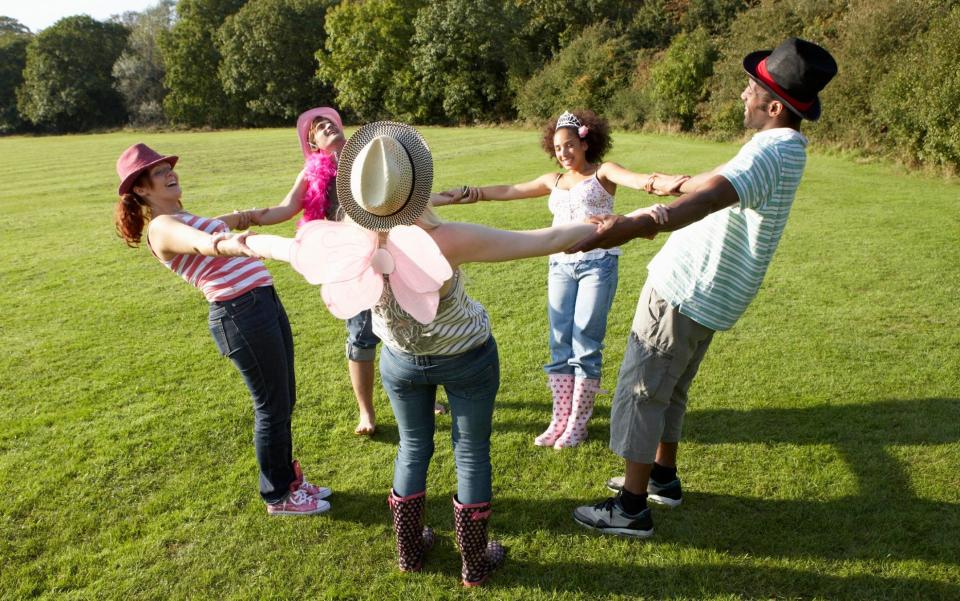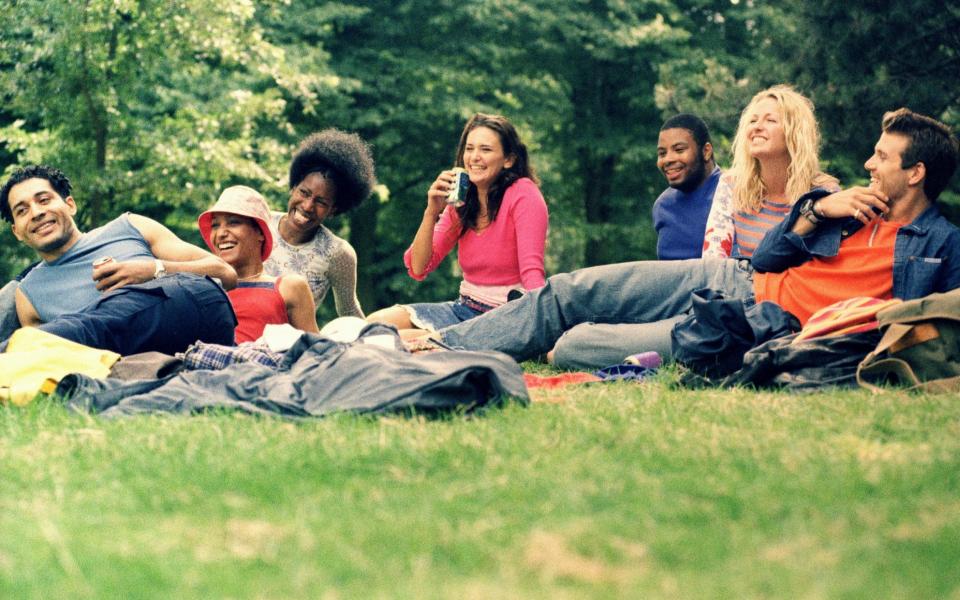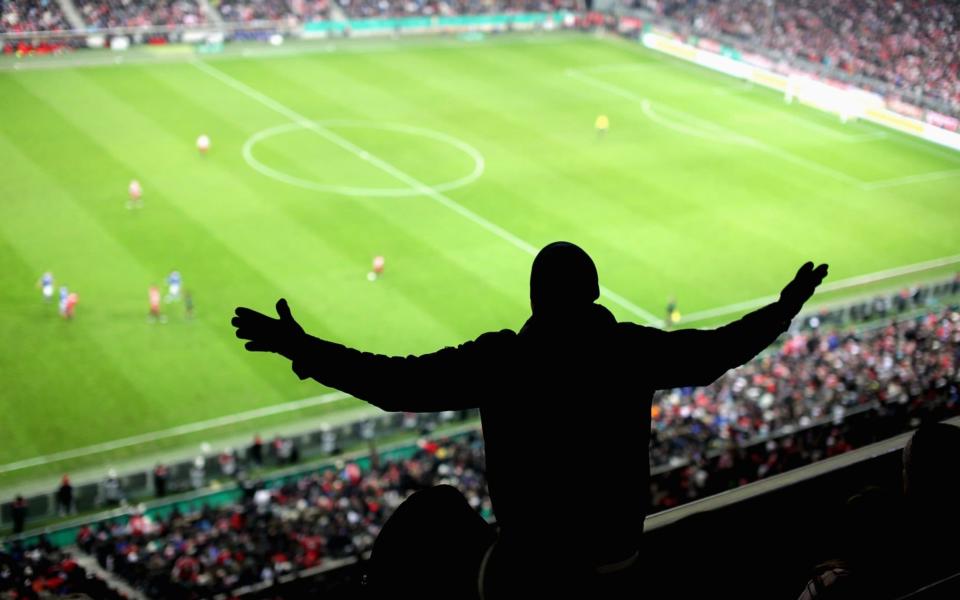Why human interaction is vital for all of us – now more than ever

Michael Gove’s pronouncements on “necessary social contact” stopped me in my tracks. While I support the rationale for limiting face-to-face interactions to slow the spread of the virus, how do we decide what is “necessary” and what is not when it comes to our social interactions?
For as the research in my new book The Lonely Century makes clear, social contact, forming and re-forming daily bonds with people we care about, work with or simply chat to in our neighbourhoods isn’t just necessary – it’s vital. For our health, both mental and physical.
If you feel lonely or are socially isolated you are more than 30 per cent more likely to die prematurely than if you are not. Even relatively short periods of loneliness can have such an impact.
A 2010 study of people who had experienced a period of loneliness found that their life expectancy was diminished, even when their experience of loneliness was less than two years long.
Researchers looking at the mental health impact of enforced periods of isolation during the 2003 SARS outbreak found that healthcare workers in Beijing who had been quarantined were more likely to be suffering serious depression three years later than those who had not been, even though SARS quarantine periods typically lasted less than a month. Like all other primates, humans are social animals. We rely on complex, tight-knit groups to function, from the primordial, chemical bonds between mother and infant to the larger family unit to today’s massive nation-states.
Indeed, in many ways the rise of humans to the top of Earth’s planetary food chain can be traced to our enthusiastic togetherness: from our development of sophisticated group hunting-and-gathering techniques for food, to our collective defence strategies for protection.
Until very recently in the history of our species, a lonely human would have been quite literally at risk of death; vulnerable in a world where “the group” enabled survival. Being connected to others is our natural and, in fact, desired state – whether this desire is conscious or not.
This is why not being connected to each other has such a profound negative impact on our health. For, in order to disincentivise us from remaining alone (a state fundamentally at odds with our survival), evolution has equipped our bodies with a biological reaction that ramps up our alertness and is so physiologically and psychologically unpleasant that we are motivated to find company as quickly as possible.
Neither is it good for society when our face-to-face interactions are shut down. For it is in the brief catch-ups at our local greengrocer or the “how are yous?” we exchange as we pick up a coffee, as well as in the deeper relationships we forge with those who live on our street, that barriers break down and communities are built.
Physically coming together engenders something very precious of which digital relationships and even talking on video services like Zoom can only ever be poor imitations. For it is when we can pick up on non-verbal cues such as body language or even scent that we are best able to experience empathy and practice reciprocity and co-operation.
So while I do understand that the Government is faced with incredibly difficult decisions and am a strong proponent of mask-wearing and physical distancing, let’s not pretend that forsaking social contact does not have consequences. The Government needs to acknowledge this and commit significant funds to supporting the many millions of UK citizens who are already suffering from loneliness and isolation, a number likely to rise further as the nights draw in and winter leaves a chill.
Critical, too, is that it commits to rebuilding our communities by actively supporting our local shops and refunding the infrastructure of community – libraries, youth centres, day centres.
And critical also is that each of us play our part – asking ourselves who in our own network might be feeling particularly lonely and reaching out.
Noreena Hertz is honorary professor of economics at University College London and the author of The Lonely Century: Coming Together in a World that’s Pulling Apart (RRP £20). Buy now for £16.99 at books.telegraph.co.uk or call 0844 871 1514
What our writers say
We asked some of The Telegraph's writers to let us know what they thought about social contact in the age of coronavirus. Here's what they had to say...
‘I’ve stopped listening’
Debora Robertson
The Government’s messaging over Covid has been so inconsistent, I long ago stopped listening. I trust my own judgment far more. Since March, I have washed my hands, masked up, kept my distance, had antibac gel in every bag. But the truth is, I’ve barely left the house other than to walk my dogs, do bits of shopping and on three occasions, to have very socially distanced drinks in the gardens of my closest friends. I have elderly parents with precarious health who I had to feel comfortable visiting in an emergency so I knew I could only do that if I hadn’t been in contact with others. When restaurants reopened, even the small risk of catching Covid outweighed the pleasure I could take. Being able to help my parents when they need it counts to me as essential social contact.
‘Social contact gives me energy and keeps me sane’
Rowan Pelling

If you’re one of nature’s extroverts, who gets your energy from social situations, seeing friends isn’t just jolly – it’s vital for your sanity. Lack of company means lack of energy and can easily lead to depression. Even before the rules fully relaxed I started meeting three Cambridge friends in a nearby meadow. We always sat metres apart with our own glasses and bottles, gossiping and clinging to human connection. These are the measures that kept us sane and functioning. I’m no kind of Covidiot or wanton risk taker. I miss parties and London functions, but they’re not essential for my happiness. But sharing confidences and jokes with my closest women friends in person, round a wind-lashed garden table if necessary, should in my opinion be enshrined in human rights law.
‘Being sociable at the school gate isn’t just chatter – it’s crucial support’
Maria Lally
Last month, Gavin Williamson urged parents not to linger at the school gates and I got a similar email from my children’s school, asking parents not to approach each other to stop the spread. And I get it. But when my mother was dying in 2018, if I turned up for drop-off red-eyed, another mum would swiftly offer to collect my daughters from school that day. When a mother starts a new job, an army of us will help with lifts. I’d go as far as to say I couldn’t do my own job without my school gate friends, who fill the childcare gaps. Last year, a friend of mine even helped her school gate friend leave her abusive partner. To write off the school gate as unnecessary social contact misses the point entirely.
‘Being part of a football crowd is social contact millions of us need’
Tom Ough

It’s now six months since I’ve bellowed with 60,000 people the word “w-----!” at some poor guy in knee-high socks. Although football has re-emerged beneath an eerie, biosecure carapace, the stadiums remain empty. This is a considerable loss to millions of football fans like me. What we get out of it has been attributed to quasi-religious fervour, a simulation of tribal warfare, and an escape from our humdrum lives. Football matches provoke raw emotion of the kind that everyday life doesn’t allow us to express. I miss feeling the same thing as tens of thousands of other people. I will know this pandemic is over not when the line on the graph goes flat, but when I clunk through a turnstile and take my seat in a packed stadium.
‘Those who live alone may not have any necessary social contact’
Zoe Strimpel
Yet again the Government’s coronavirus policy is blind and deaf to those like me who live alone, or who don’t reside in families of loving relationships. When you’re single, for instance, there is nobody you necessarily have to see. Normally I love my home set-up; but as the realities of lockdown round one asserted themselves, I found myself neurotically zooming friends and family. I had finally invited friends over for two big dinner parties in the next few weeks – ecstatic at the chance to be at home with loved ones again. Now those are off. Ditto dinner this week at the house of some dear friends who I haven’t seen in eight months. The measures, however necessary to steer the ship in the short term, are depressing.

